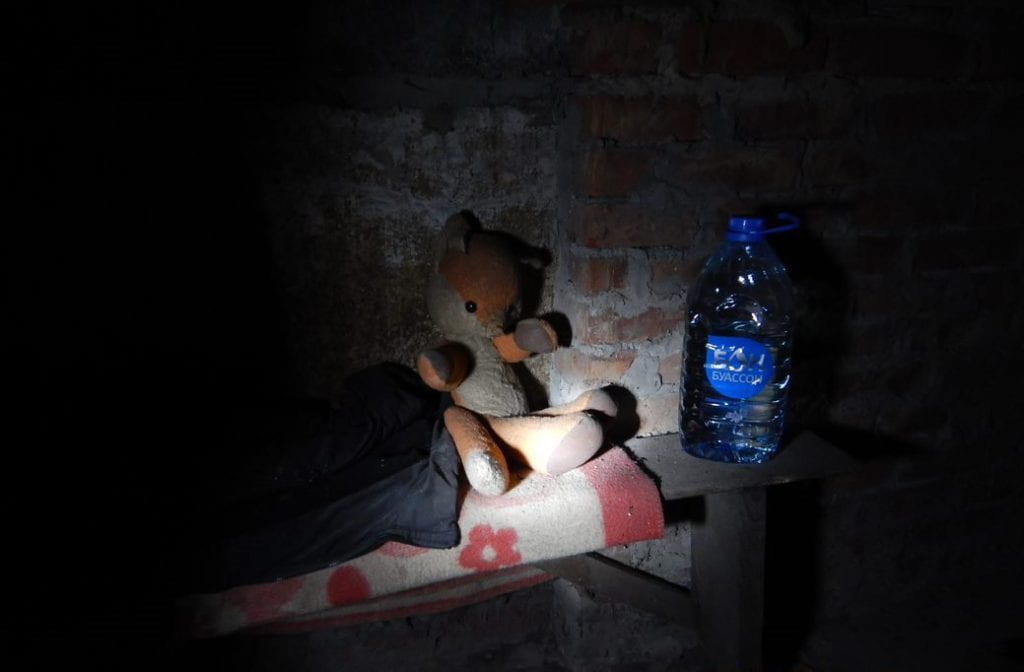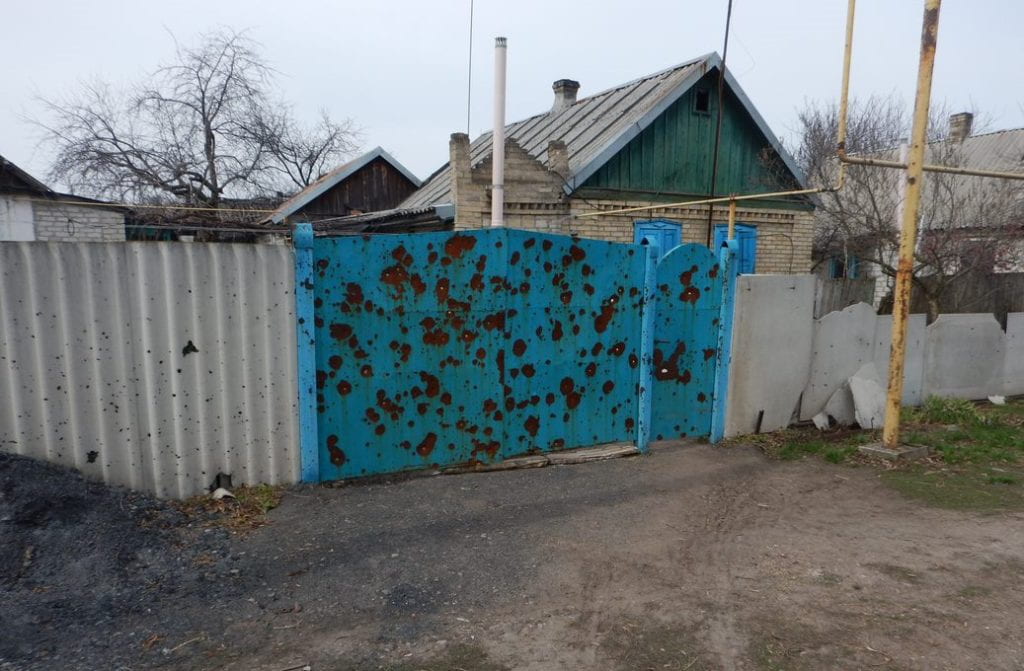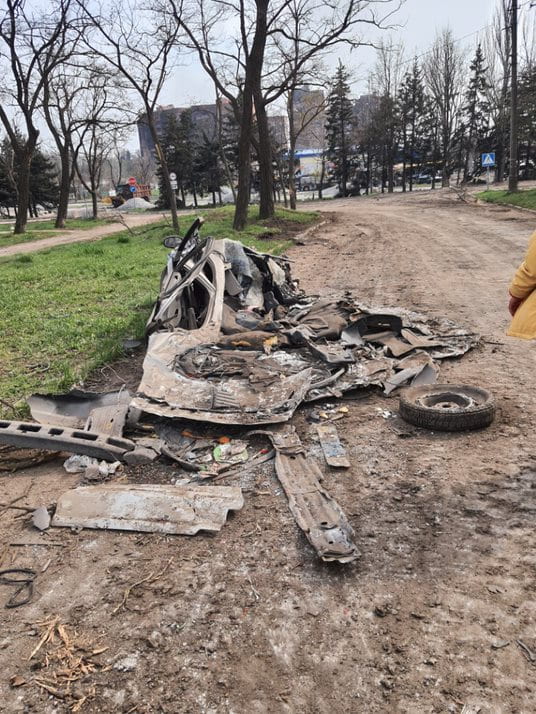Talking to survivors and gathering evidence is crucial for future justice

“This work takes a toll on you,” Serhiy Movchan says, “I remember all the testimonies I collected, and that is why I initially left this job as I needed a break from them. But now, there are more of these stories, and they are even more terrible. So, I returned in February of 2022 to collect them once again.”
Serhiy is the head of the documentation department of the Ukrainian Helsinki Human Rights Union (UHHRU), Ukraine’s biggest human rights organization. With his colleagues, he has been documenting war crimes and human rights violations in occupied Crimea and Eastern Ukraine.
Together with Nobel Prize winner Center for Civil Liberties and The Kharkiv Human Rights Protection Group, the UHHRU launched an initiative called Tribunal for Putin, or T4P. The project, launched in March of 2022, now includes 24 human rights organizations from Ukraine working together on documenting atrocities of the Russian war. Lawyers, human rights defenders, and analysts gather data on events that evidence genocide, war crimes, and crimes against humanity with the aim of holding Putin and other criminals accountable.
Keeping the international momentum

“You can see how the interest toward Ukraine grew dramatically after the February invasion,” Serhiy says, “When we were documenting war crimes before 2022, we had to convince the International Criminal Court to investigate the war in Donbas. Now, we don’t need to convince them anymore, and they are paying attention.”
Serhiy started documenting war crimes in 2016 when he joined UHHRU. Back then, the world showed much less interest in Ukraine, and it took time to get any recognition from major international organizations and courts – even though Russia annexed Crimea in 2014 and was behind the war in Donbas.
“Ukraine never ratified Roma statute and does not fall under the jurisdiction of the International Criminal Court although Ukraine did request ICC to look into the crimes that were committed in Donbas and Crimea,” Serhiy explains, “When the ICC started working on these, they labeled the events as “non-international armed conflict.” It was only after civil society organizations and law enforcement agencies sent documents confirming Russia’s involvement as a party of war controlling separatist territories, that the ICC said the conflict was international.”
When the full-scale invasion started, however, the reality was different. On March 2, a week into invasion, the ICC already opened a case and sent its team to Ukraine to investigate Russian violations.
“They understood that they could not ignore the events in Ukraine,” the expert says.
Serhiy’s team, too, is gathering data across Ukraine as they have colleagues staying in the occupied zones and contacts travelling to the recently liberated areas. The effort is further helped by the media who share what they discover as well as team members in the rear working with internally displaced people.
“In Eastern Ukraine, we had local journalists embedded with the army who entered deoccupied territories together with Ukraine’s Armed Forces,” Serhiy proceeds, “They sent us stories and connected us with people who wanted to talk to us as well as needed legal support.”
“When we give people our contacts, we stimulate them to ask for legal help,” he continues, “So if they do it, they will talk about what they experienced. This is a remote way of getting information, and the person does not feel like they were used as our lawyers help them for free.”
Whenever interviewing people, it is crucial to get people’s written permission to publish their information and stories. The team always explains to the victims that court cases in Ukraine and internationally can take a long time to investigate and prosecute – as long as a few years.
“Do no harm”

In many cases, Serhiy’s team starts documenting crimes simply by going into a new town and striking up conversations with local people.
“Whenever we walk the streets and see destruction, we would just approach people nearby and talk to them,” the expert says, “We’d ask them what happened, when, and if they saw Russian soldiers and equipment. This could be done to random individuals going about their days in freed areas, but we could also approach concrete people we know or specific locations. For instance, we have a colleague in Kramatorsk, close to the heavy fighting, who learned that there was a shelling nearby, so he drove there right away to document what happened.”
Serhiy and his team talk to people in deoccupied territories to understand the reality of occupation better. Many do not want to talk on camera or prefer to stay anonymous, but their testimonies can still be used to corroborate other accounts and to paint a general picture. People’s stories are later used for appeals to the European Court of Human Rights and other courts as well as for future analysis and tribunals.
“We understand that one person’s testimony may not carry out the whole truth as people’s memories often get rid of negative emotions and moments,” the Serhiy observes, “What we do is that we use open-source data and other people’s testimonies to match what has been said to collect the most reliable evidence.”
Serhiy is based in Kyiv region, an area in Northern Ukraine. Part of it has been occupied by Russian forces and was freed in April, after which the world community learned of atrocities committed by the Russian forces in Bucha, Borodyanka, and other places.
“We had cases of people tortured with electrical current when a device was linked to their nipples,” Serhiy recalls, “Some people were placed on metal tables and had heavy bags on their bodies, and then, they were electrocuted. Another case was when a man was hit with a wooden cross on the head by a Russian Orthodox priest because the man said he belonged to a Ukrainian church.”
“I don’t want to talk about torture,” Serhiy sighs, “I do not want to talk about cases when people were threatened to be shot or other terrible crimes. There is so much of it now. We have documented lots of crimes before, but now, it is much more of them.”
“We will never have enough professionals in some localities because of the number of crimes committed there,” he adds, “When we go somewhere, it is difficult to evaluate how many people we will need for documentation. For example, I hope to be able to go to Kherson soon when Ukraine frees it. I know that there is a town in that region which has around 300 houses destroyed, and we need a lot of people to photograph that and so on. Yet, there are very few people left there, so we will get few witnesses to interview.”
Serhiy recognizes the risks of his job, which are both physical and psychological. He and his teammates are talking to lots of individuals who lived through cycles of trauma, fear, and repression.
“The hardest part of the job is not to harm the person you interview. Your work needs to bring good,” the man says, “It is hard to distance yourself from your interviewee’s emotions, and you also don’t want the person to feel like their words don’t matter to you. So, it’s all about balancing interests and doing no harm, and this is very difficult.”
“I admire all these people who, after what they lived through, can still talk about it,” Serhiy continues, “I also respect those who cannot and do not want to talk. We cannot pressure them. If they want to talk, they will do so when they are ready. We had a case of a man who was in Russian captivity before the full-scale invasion. Once he was released, we reached out to him, and he rejected talking to us right away. Four months later, he called us back, apologized, and shared his story with us. I really admire this in people who, after having survived torture and other terrible things, still seek positive and bright moments in life. Even when they are talking about being captured or tortured, they still recall some happy moments. Their take changed me, too, because I try to see happiness in simple things.”
“Whenever we are close to the frontline, we ask people why they are staying there,” the man adds, “I remember a man whose house and farming equipment were badly damaged. The guy cleaned everything around and inside the house, and even ironed his curtains. When I asked why he never left this dangerous area, the man simply said: “Well, my cat is here, and I have chickens, so I cannot leave them. That’s just how we live now.” To him, the biggest loss was when Russians shot at his house and destroyed all the bottles of the homemade wine he just prepared. It made me think how people grieve differently when they live inside the war.”
Making Russia comply
All the testimonies and other evidence Serhiy and his team gathered is later added to a database. The latter is shared with other NGOs that are a part of Tribunal for Putin initiative, and which keep adding their information on war crimes. Later, the data is passed to the European Court of Human Rights and different UN committees through individual appeals of the victims. The data is also sent to international investigators such as the UN Monitoring Mission which recently released a report on Northern Ukraine. In addition, the coalition passes some information to the ICC whenever they request specific data.
Serhiy hopes that the data and investigations will lead to justice for victims.
“Europe has not had a war of this scale for a very long time, so it is difficult to determine the best legal protection,” Serhiy says, “It gets even harder since the enemy is a permanent member of the UN Security Council, and it still has a lot of international leverages and limitless resources.”
Ukrainian courts tried to obtain reparations from Russia for its crimes, but Russia does not respect their rulings. Other victims tried to take Russia to courts inside Russia, but these failed, too.
“There is no universal way to protect yourself from Russia,” Serhiy says, “Still, every mistake or failure is a good foundation for further actions and for people who want to defend their rights. It would be great to have a clear path for just compensation, but it is only possible when your opponent is adequate. However, when your opponent is Russia, it is difficult to talk about anything like that.”
Serhiy points out that it will take a long time and lots of efforts to receive compensation from Russia for its crimes in Ukraine, and a lot will depend on Ukraine’s Ministry of Foreign Affairs, law enforcement, and civil society. Plus, a court ruling does not mean that Russia will comply.
“I hope that we can use frozen Russian assets to rebuild Ukraine and get some compliance,” Serhiy says, “But it will be much more difficult to get compensations out of Russia itself. We can talk about the regime change in Russia as a possible path, but I have little faith in “good” or liberal Russians. Often, their rhetoric matches the rhetoric of the current leadership. A good example is Russia’s last presidential elections where they imitated democracy. Whenever the candidates were asked about what they would do with Crimea, their answers showed it all. Not a single candidate said that they would return Crimea to Ukraine. Since Moscow was found, Russians always have been attacking us. This shows that making Russia comply will be the most difficult task for us all.”
Serhiy sees an uncanny resemblance between Russia’s current invasion of Ukraine and the Second World War. He hopes that better and more timely information on Russian atrocities can change the war and the amount of aid Ukraine gets.
“Every Russian atrocity gets international attention and brings more international investigators,” Serhiy says, “Every new fact keeps Europe alert. However, Russia has been investing lots of resources into many countries across the globe. We have examples of Hungary, which is blocking many sanctions against Russia, or some statements from Bulgarian politicians against Ukraine ever joining NATO. There are also all these influential Europeans on the boards of Russian energy companies and so on, which raises a lot of questions on direct and indirect links Russia built with the EU. Therefore, any photo of torture chamber or Russian atrocities in Balakliya, Izium, or Lyman where a mass grave with 50 people was discovered – all these documented and published facts have to make Russia supporters think and reflect. Supporting Russia makes you complicit and liable.”
“I hope that after Ukraine’s victory and the end of the war, Russian supporters will also have to pay a political responsibility,” the expert continues, “Any country that supported Nazi Germany had a responsibility afterwards, and the same needs to happen to Russia’s enablers nowadays.”
Anna Romandash is a Ukrainian freelance journalist and 2022 Research Affiliate at the Mgrublian Center for Human Rights at Claremont McKenna College
